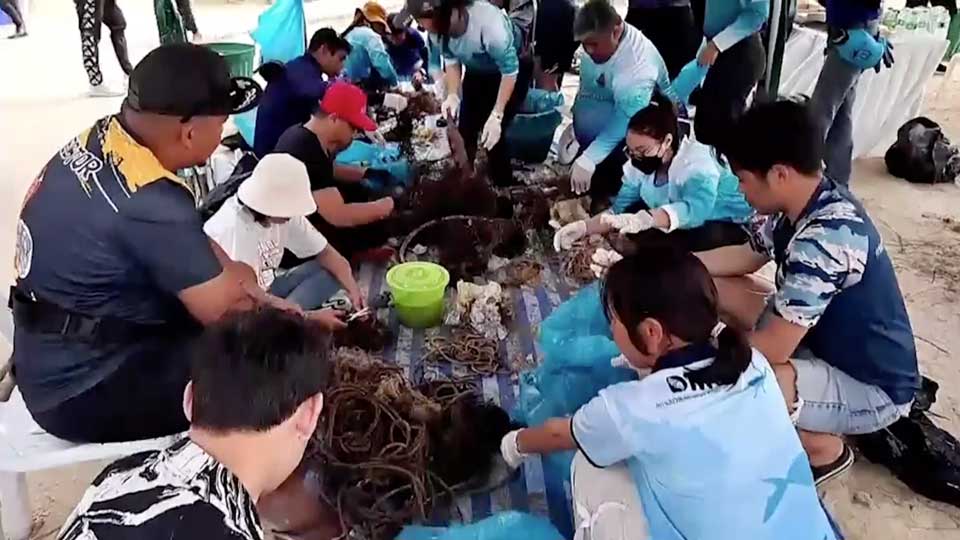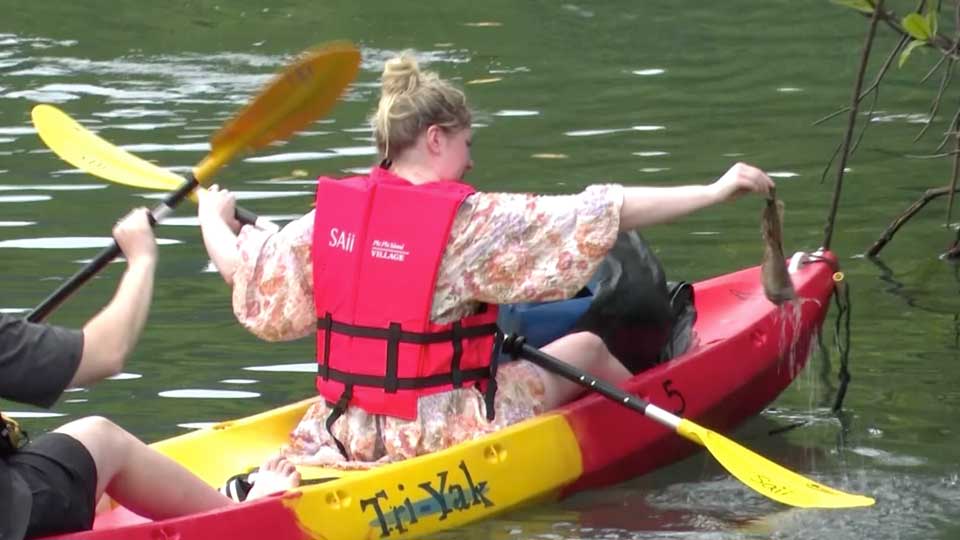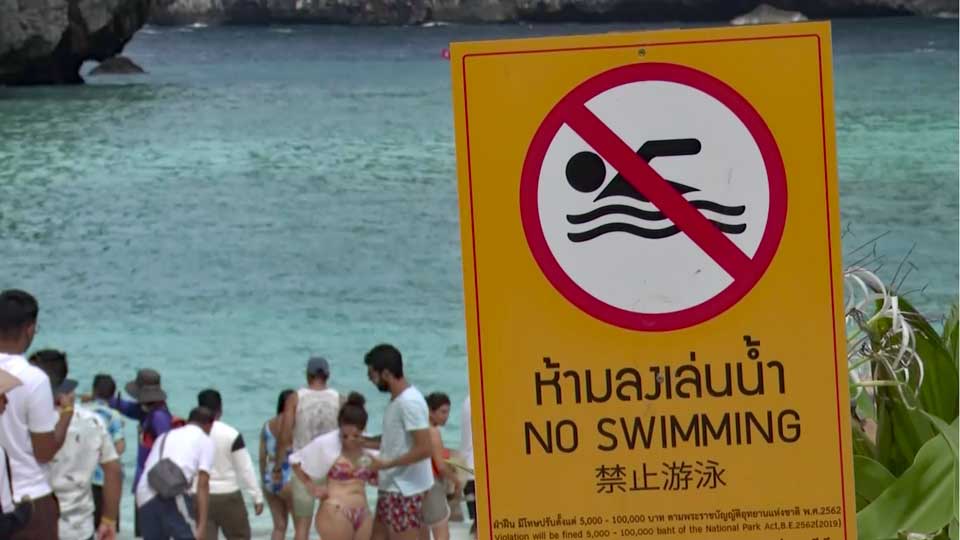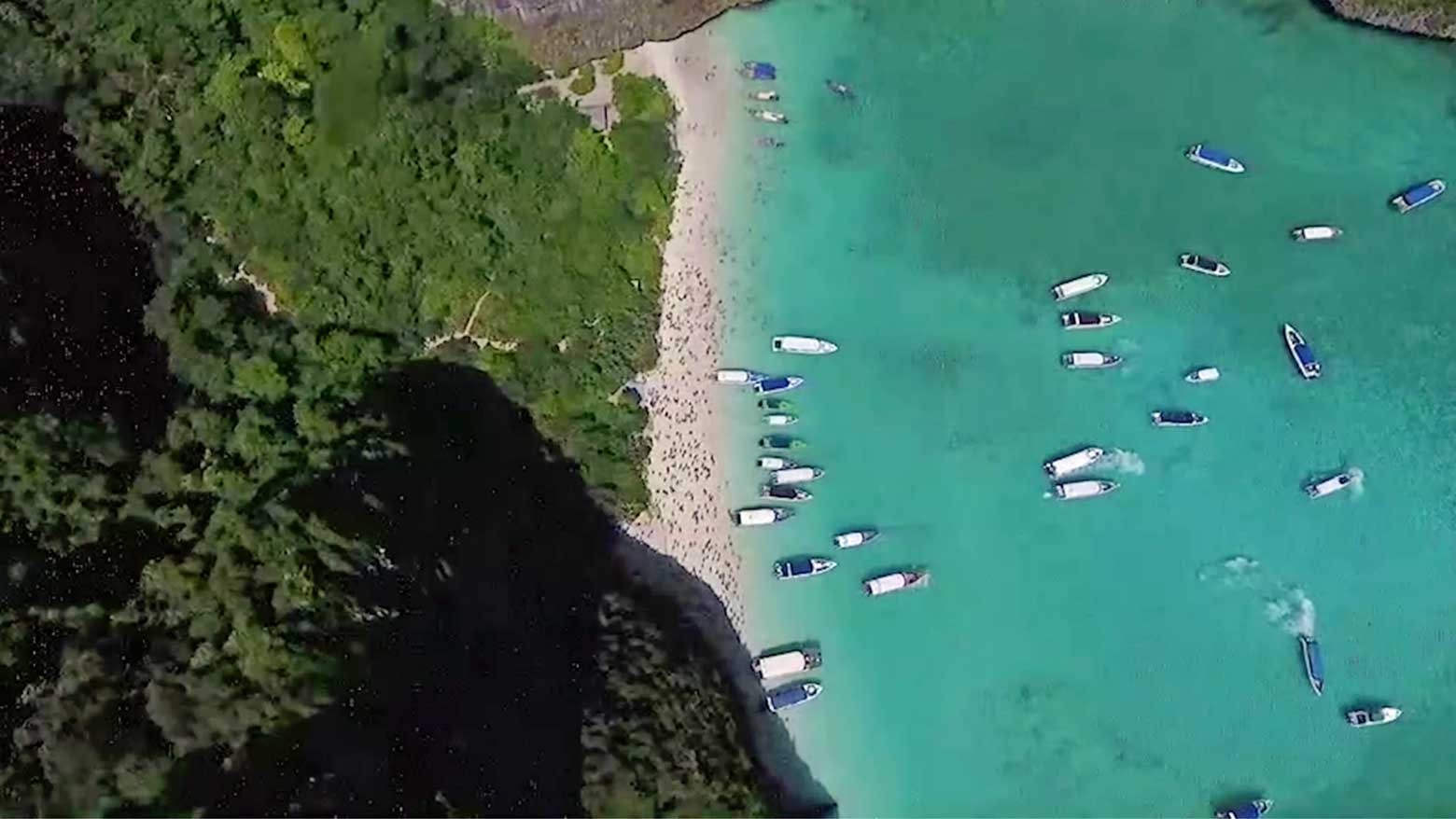Rethinking post-pandemic tourism
Last November, almost 400 divers from around the world gathered for a special event at the popular beach resort of Phuket. Their task was to collect garbage from the sea in an initiative that would reap benefits for the environment and the tourism sector alike.
"We set up this event to create awareness among foreign visitors," says Chiravadee Khunsub, an executive director of the Tourism Authority of Thailand. "We want them to know Thai people prioritize conservation and sustainability now, after the pandemic."

Businesses riding the green wave
Tourism businesses around Thailand are jumping on board the sustainability movement. The Saii Phi Phi Island Village resort — one hour by boat from Phuket — is sprucing up its attractions for environmentally conscious travelers.
The hotel's Marine Discover Center, which opened in 2018, supports sea creatures faced with depopulation from overtourism, such as clownfish and bamboo sharks. It also aims to educate visitors about marine life and ecosystems with guided tours that include fish-feeding and trash collection by kayak.
Nantiphat Saechao, a 27-year-old marine biologist who works at the center, says guests these days are more engaged with environmental concerns, and that has inspired him to offer a range of unique "green" activities.
"We have to keep these activities going, and add more, to allow local businesses and hotels to join in," he says. "Hotel guests can feel inspired and satisfied, looking after the environment."

Lessons from overtourism
The Phi Phi Islands are home to Maya Bay, which rose to fame due to the Hollywood movie "The Beach." The crowds of people who subsequently descended on the area destroyed its marine ecosystem, prompting authorities to close it for four years. The bay reopened in early 2022, and the whole area is buzzing once again.
New rules are in place to protect Maya Bay's natural beauty. Visitors can only stay for one hour, and they are not allowed to swim. Boats are also banned, meaning visitors have to hike in from the other side of the island.
"Some tourists come with the expectation to play in the water," says Adisak Ngiamsanoi, an officer at the Hat Nappharat Thara-Mu Ko Phi Phi National Park. "They do question the new rules and the reasons behind them. So it's up to us to explain about coral reef and marine life preservation."

Engaging tourists with the local community
Nanthipat from the Marine Discover Center encourages tourists to participate in coral conservation efforts.
Hotel guests can pay up to $30 dollars for an experience where they scrub off algae and debris from an underwater coral nursery. Argentinian visitor Francisca Frini says she got her diving license so she could take part.
"It's like a whole new world for us," she says. "The chance to participate in this kind of activity allows us to learn a lot more about the environment and how take care of it. As tourists, it's important that we are aware of the value of a beautiful place like this."
Nantiphat is also mindful of the big picture. When he arrived on the resort island two years ago, he sought to connect tourism with local coastal communities. He speaks about the dangers of overfishing and hopes that his example can serve as a reminder that sustainability is important for everyone.
"Business operators, hotels, tour groups, local communities, fishmongers, hotel guests…we must all work together responsibly to keep our environment and this tourist destination intact for future generations to come," he says.

As Thailand prepares to welcome 25 million visitors this year, the government is harnessing efforts from all sectors to step up sustainability efforts, especially at popular holiday spots. To that end, authorities are working to increase awareness about the importance of responsible tourism.

